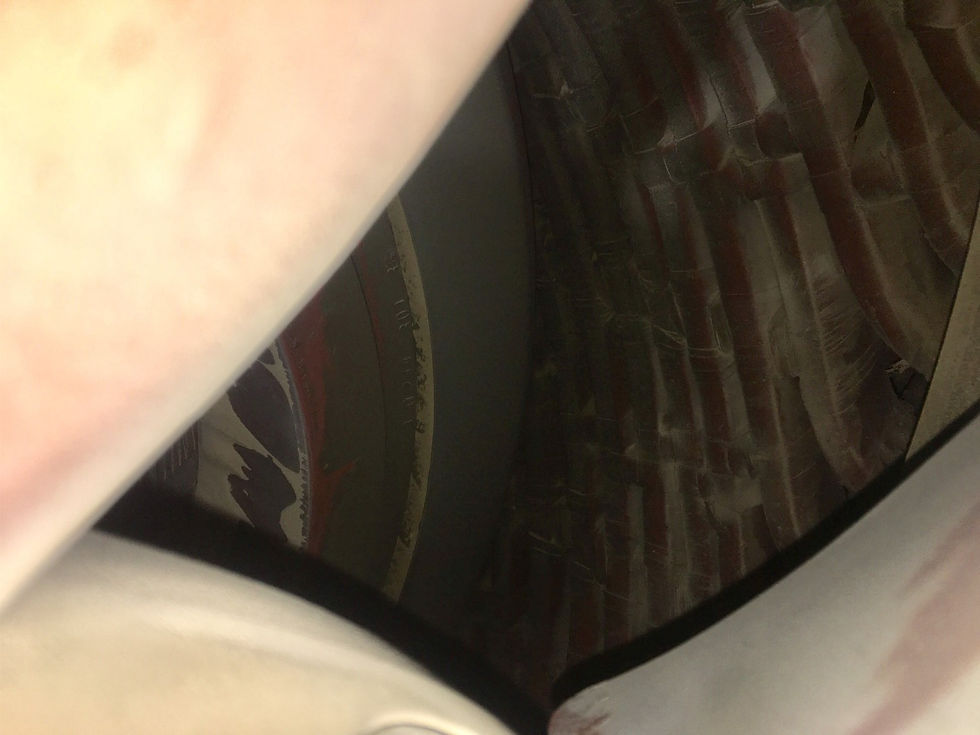High Fan Vibration & Bearing Failures
- Nitheesh Abdul Rahman
- Sep 5, 2024
- 2 min read
The customer was experiencing frequent Fan bearing failures due to excess vibration amplitudes. Osborne Engineering was invited to identify and rectify the issue.
The case study below pertains to the air transfer fan used at a facility in Abu Dhabi.

Equipment Technical Data
Motor Power: 90 kW
Motor Speed: 1478 RPM
Fan Speed: 1300 RPM
Motor Bearings: DE-NU 316 and NDE-6314 C3
Rotational Direction: Counterclockwise (CCW)
Diagnosis
The fan was initially non-operational as extremely high vibrations made the fan unsafe to use. Due to extremely high vibration, it was not possible to take the initial vibration measurement.
The impeller was inspected visually, and during the inspection it was found that the impeller had heavy scaling causing the imbalance.

There was a significant reduction in vibration values after removing the scale, but the vibration values were still above the acceptable limits.
Vibration data was collected to assess the vibration.

Vibration spectra revealed high vibration at the running speed of the Fan or 1X Fan Frequency. Few harmonics were also present due to the high vibration amplitude.
Since the dominant cause of high vibration was unbalanced, it was decided to balance the impeller.
Balancing Process:
A 490-gram counterweight was added to the impeller at an angle of +260 degrees relative to the shaft key phasor location.
Result: The vibration was reduced to 1.84 mm/sec, indicating successful balancing.


Vibration Reduction: The overall vibration magnitude dropped to 1.84 mm/sec RMS, falling within the "Good Zone" as per ISO 20816-3 standards. 9X related to the Vane Pass Frequency.
Conclusion
The successful balancing of the fan after the scale removal and balancing has led to a significant reduction in vibration levels, ensuring the fan operates within the "Good Zone" as per ISO standards. Regular monitoring and maintenance will help in maintaining the operational efficiency of the fan.





Comments